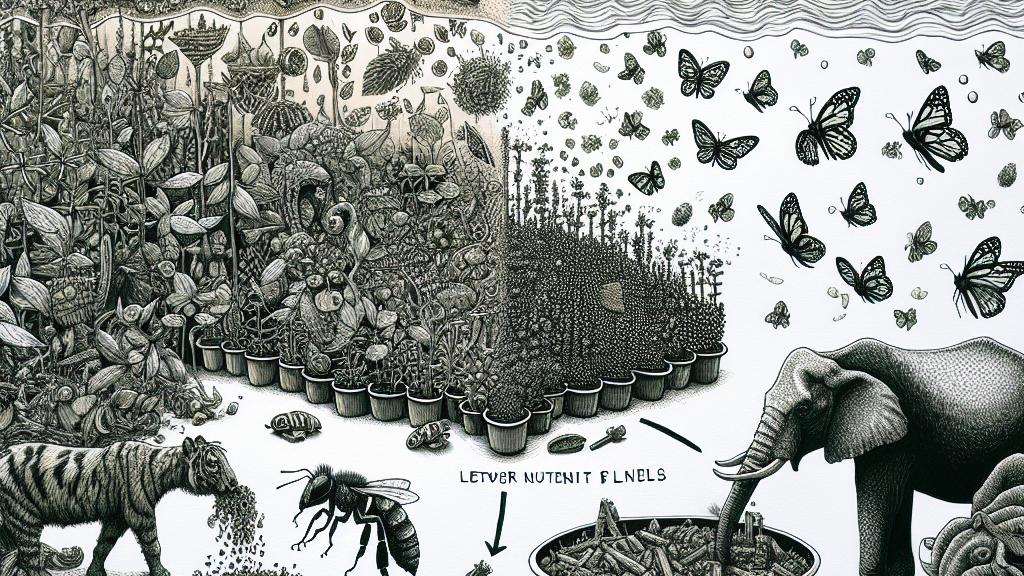Understanding How Climate Change is Affecting Plant Nutrition and Grazing Animals
Overview
- Climate change drastically lowers the nutritional value of plants globally.
- Grazing animals, from cows to giant pandas, face growing challenges in their diets.
- This nutritional decline threatens the health of both wildlife and human populations.

The Impact of Climate Change on Plant Nutrition
In the United States, the effects of climate change are transforming ecosystems, significantly altering the nutritional quality of plants. More than one-third of all animals—like busy bees, towering elephants, and nimble deer—depend on these plants for nourishment. While rising carbon dioxide levels and warmer temperatures encourage rapid plant growth, the unfortunate twist is that many plants are becoming less nutrient-dense. Picture yourself at a buffet with plenty of food, yet when you eat it, it barely satisfies your hunger. Grazing animals now have to spend more time foraging for this less nutritious food, exposing themselves to predators and other dangers. This scenario reflects not just a dietary change but a pressing threat to their survival.
Effects on Animal Populations
The implications of this nutritional decline are far-reaching, affecting animal populations in profound ways. Consider the endangered giant panda, a species that relies almost entirely on bamboo. As climate change alters habitats, rising temperatures diminish bamboo's nutritional values, forcing these gentle giants to spend up to 14 hours a day consuming bamboo just to meet their nutritional needs. It’s hard to imagine dedicating an entire day to eating yet feeling unsatisfied! And it’s not just pandas; livestock is similarly impacted. Cattle and sheep struggle to find sufficient protein in their grazing lands, leading to slower weight gain and financial burdens for ranchers. This interconnected web highlights that every strand—plants, animals, and humans—is linked in this delicate ecosystem.
Nutritional Concerns for Humans
Moreover, the ramifications extend to human health, creating pressing concerns for us all. Declining nutritional content in staple crops like rice and wheat threatens to increase deficiencies of essential micronutrients—iron and zinc—especially in regions where people rely heavily on these crops. Imagine a world where our daily diets lack critical nutrients; the implications could be disastrous. Public health issues could escalate, particularly in vulnerable populations, leading to malnutrition and health crises. This situation clearly illustrates the interconnectedness of our ecosystems; what happens to plants reverberates throughout the food chain and ultimately impacts human health. Therefore, it is crucial for us to take action now, not only to protect wildlife but also to ensure the health of our communities.

Loading...